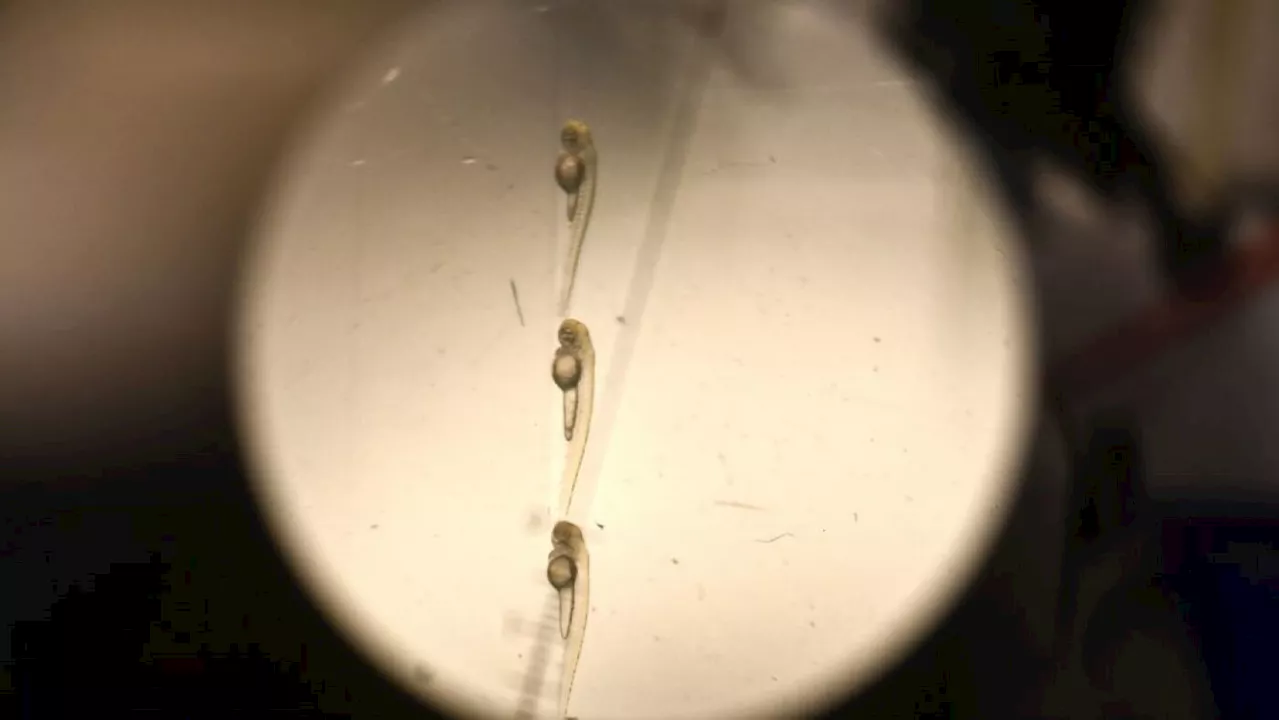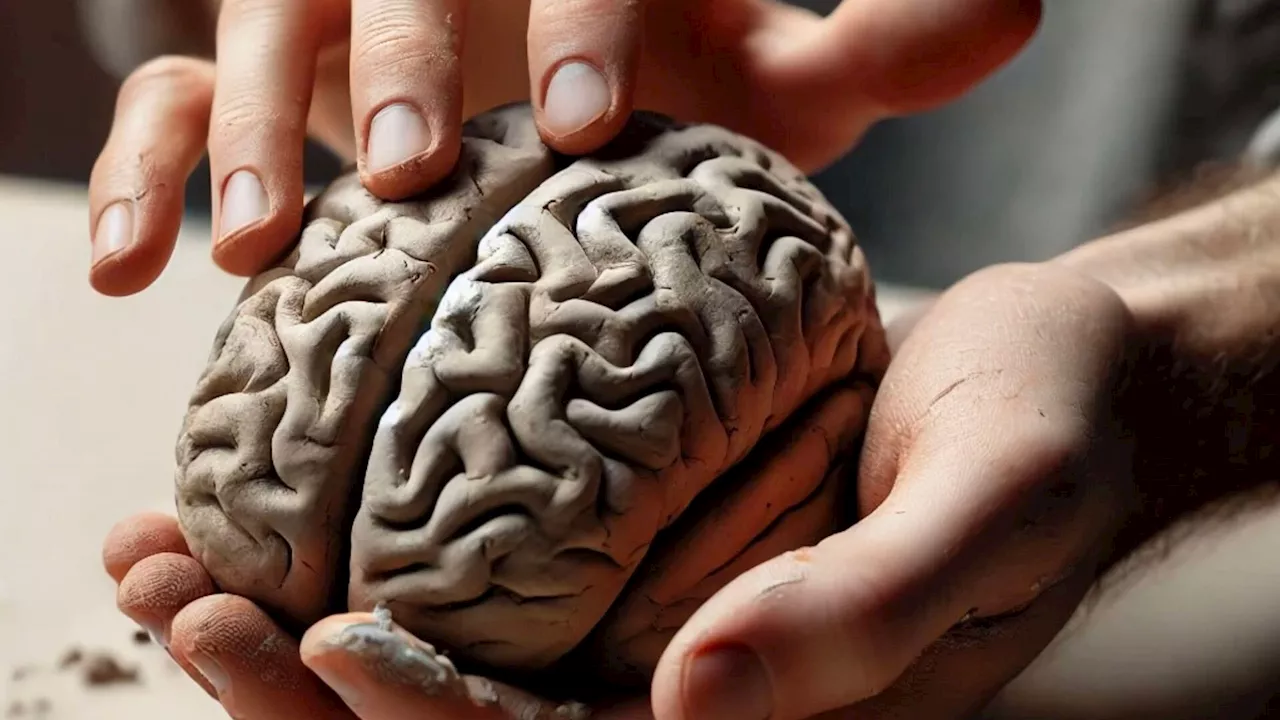Astrocytes — brain cells that communicate with neurons — became more active during the testing.
CAMBRIDGE, Mass. - Researchers at Harvard University gave ketamine to baby zebrafish while studying its effects on depression and helplessness,“It’s transparent, so you can basically see what’s going on in the entire brain all at once,” said
For the experiment, researchers needed to produce feelings of helplessness in the zebrafish. To do so, they turned to virtual reality.When researchers stopped showing the fish that visual stimulus, they found the fish “goes from swimming happily to getting stressed and struggling,” said Ramirez.” behavior is used to test antidepressant drugs in animals, especially mice. A promising drug will usually cause the animal to struggle longer before giving up.
When the baby zebrafish swam in water treated with ketamine, scientists found that different parts of the brain were activated.“When we looked acutely at what ketamine does, we saw that ketamine actually activates these astrocytes in a way that nothing else does,” Duque said.and receive the latest local news and weather straight to your email every morning.
Fish Baby Larvae Larva Larval Ketamine Depression Testing Science
United States Latest News, United States Headlines
Similar News:You can also read news stories similar to this one that we have collected from other news sources.
 Ketamine Resists Giving-Up Behavior in Fish by Activating AstrocytesResearchers found that ketamine, a drug used to treat depression, alters the activity of astrocytes in the brains of zebrafish, leading to increased resilience in the face of adversity. The study suggests that ketamine may be influencing a 'giving-up' circuit in the brain, potentially opening new avenues for developing more effective psychiatric drugs.
Ketamine Resists Giving-Up Behavior in Fish by Activating AstrocytesResearchers found that ketamine, a drug used to treat depression, alters the activity of astrocytes in the brains of zebrafish, leading to increased resilience in the face of adversity. The study suggests that ketamine may be influencing a 'giving-up' circuit in the brain, potentially opening new avenues for developing more effective psychiatric drugs.
Read more »
 Scientists create AI that 'watches' videos by mimicking the brainImagine an artificial intelligence (AI) model that can watch and understand moving images with the subtlety of a human brain. Now, scientists have made this a reality by creating MovieNet: an innovative AI that processes videos much like how our brains interpret real-life scenes as they unfold over time.
Scientists create AI that 'watches' videos by mimicking the brainImagine an artificial intelligence (AI) model that can watch and understand moving images with the subtlety of a human brain. Now, scientists have made this a reality by creating MovieNet: an innovative AI that processes videos much like how our brains interpret real-life scenes as they unfold over time.
Read more »
 Scientists use Matrix-style learning to ‘write’ skills into human brain noninvasivelyResearchers have developed a groundbreaking technique using brain imaging and neurofeedback to induce learning without conscious effort.
Scientists use Matrix-style learning to ‘write’ skills into human brain noninvasivelyResearchers have developed a groundbreaking technique using brain imaging and neurofeedback to induce learning without conscious effort.
Read more »
 Scientists Identify Brain Cells That Control AgingResearchers at the Allen Institute have discovered specific brain cells that undergo significant changes with age, potentially influencing the aging process. The study, conducted on mice, revealed that different cell types respond differently to aging, with some showing increased inflammation and decreased neuronal function.
Scientists Identify Brain Cells That Control AgingResearchers at the Allen Institute have discovered specific brain cells that undergo significant changes with age, potentially influencing the aging process. The study, conducted on mice, revealed that different cell types respond differently to aging, with some showing increased inflammation and decreased neuronal function.
Read more »
 Scientists Identify Brain Cells Key to Aging ProcessA new study suggests that specific brain cells, particularly those in the hypothalamus, undergo significant changes as we age, potentially influencing the aging process itself.
Scientists Identify Brain Cells Key to Aging ProcessA new study suggests that specific brain cells, particularly those in the hypothalamus, undergo significant changes as we age, potentially influencing the aging process itself.
Read more »
 Scientists Identify Brain Cells Linked to AgingResearchers at the Allen Institute have pinpointed specific brain cells that undergo major changes with age. By analyzing over 1.2 million brain cells from young and older mice, they identified nearly 2,500 genes that changed with aging, revealing increased inflammation and decreased neuronal function in certain cell types, particularly in the hypothalamus.
Scientists Identify Brain Cells Linked to AgingResearchers at the Allen Institute have pinpointed specific brain cells that undergo major changes with age. By analyzing over 1.2 million brain cells from young and older mice, they identified nearly 2,500 genes that changed with aging, revealing increased inflammation and decreased neuronal function in certain cell types, particularly in the hypothalamus.
Read more »
